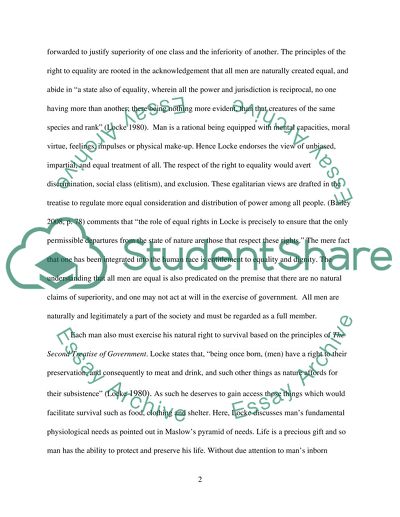Cite this document
(“John Lockes Natural Rights in The Second Treatise of Government Essay”, n.d.)
Retrieved from https://studentshare.org/philosophy/1398352-john-lockes-natural-rights-in-the-second-treatise-of-government
Retrieved from https://studentshare.org/philosophy/1398352-john-lockes-natural-rights-in-the-second-treatise-of-government
(John Lockes Natural Rights in The Second Treatise of Government Essay)
https://studentshare.org/philosophy/1398352-john-lockes-natural-rights-in-the-second-treatise-of-government.
https://studentshare.org/philosophy/1398352-john-lockes-natural-rights-in-the-second-treatise-of-government.
“John Lockes Natural Rights in The Second Treatise of Government Essay”, n.d. https://studentshare.org/philosophy/1398352-john-lockes-natural-rights-in-the-second-treatise-of-government.


